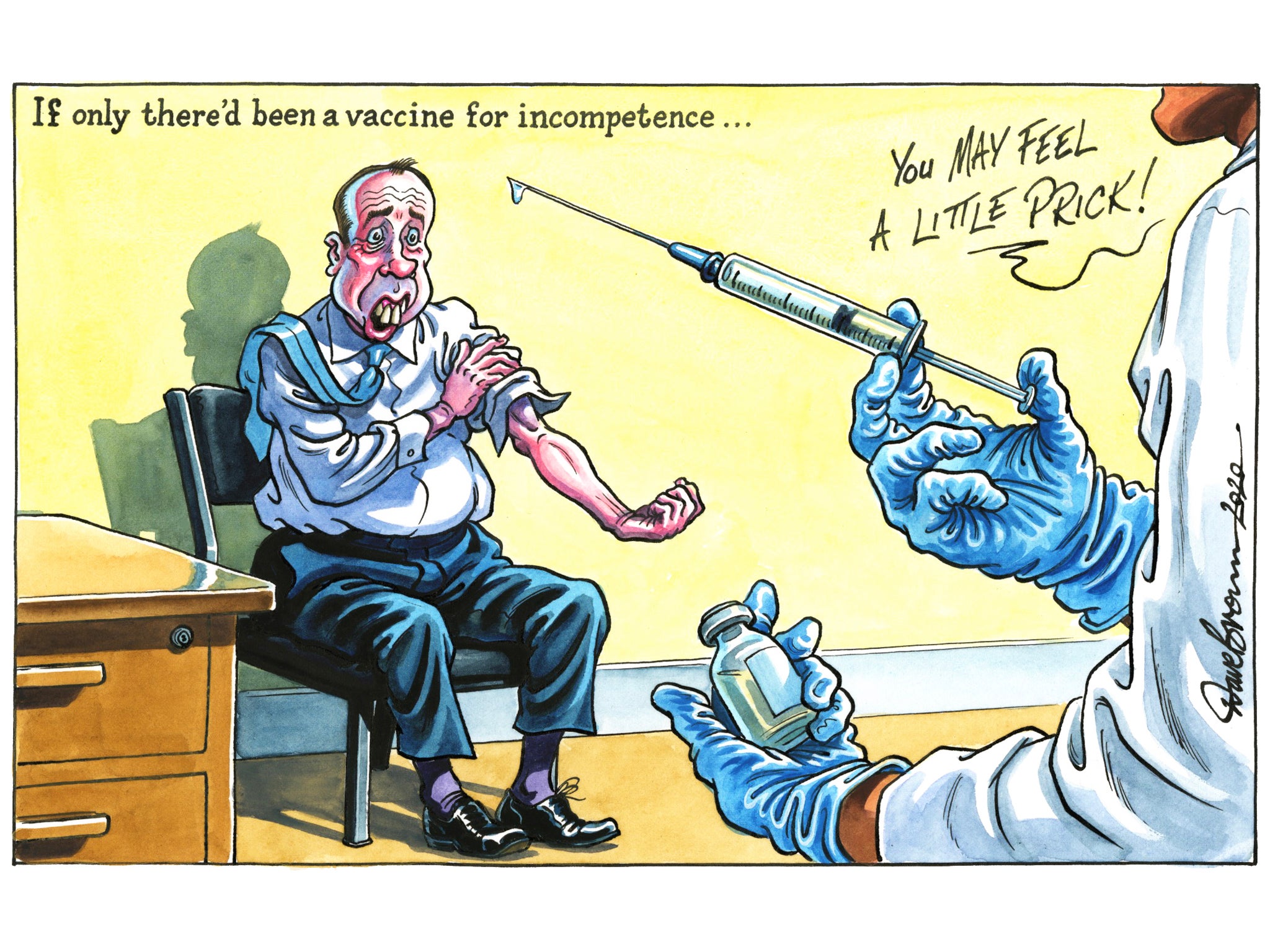Although we know the capacity of the Johnson government to make a hash of even the most beneficent of gifts, the Covid vaccine should soon be distributed to GP surgeries, care homes and hospitals. Within weeks a national programme of inoculation will be under way. Lives will be saved, suffering reduced, and the economy set for recovery. By the anniversary of the first lockdown in March 2021, it may be possible, to borrow from the Queen’s broadcast, for Britain to meet again. A spontaneous pint in a pub will no longer be a far-off fantasy.
Perhaps. For the joy that has broken out in the hours since the official announcement seems almost hubristic. Despite, for a change, the prime minister’s efforts to dampen down the optimism, expectations are running far ahead of reality. There have been far too many false dawns and broken promises for comfort.
The discovery of a new mutation of the virus in Danish mink farms, for example, is as disturbing as it is bizarre. The new vaccine may not be as effective against this new mutation, or future mutations. Like the cold and flu viruses, the researchers may find themselves in a constant game of catch-up, with annual vaccinations having only a limited effect of suppressing illness.
In a mostly densely populated continent with relatively few restrictions on movement, it is hard to believe that this new Danish version of the virus will remain confined. As with the original’s arrival in Britain, it only takes one asymptomatic traveller to spread the virus. Without an adequate test and trace infrastructure to rapidly quarantine local outbreaks, the script of 2020 will be played out again in 2021. The new vaccine does not obviate the need for rapid mass testing of the entire population.
There is near-universal welcome for the vaccine, but the so-called anti-vaxxer movement could stymie the necessary level of coverage to achieve herd immunity – which is the point of any vaccine. As was sadly witnessed with the myths around the MMR vaccine, a drop-off in numbers in due course leads to a revival in infections and illness. The conspiracy theories around vaccines are growing wilder than ever, propagated by cranks on social media.
There is also the reality that the eradication of coronavirus is unrealistic. There has only ever been one successful eradication of a communicable disease through vaccination, that being smallpox, officially declared gone in 1980. Every other such illness, from malaria to Aids, remains resistant to vaccination, though there are many treatments and prophylactics that will help people. With a pandemic such as Covid, any reservoir harbouring coronavirus has the capacity to push infections back up again.
Eradication means at least the vaccination of a substantial proportion of the 7.6 billion people on Earth. That will take time, given that this vaccine requires storage in a freezer. Even then, the possibility remains for zoonotic transmission, whether by bats in China or mink in Europe. Intensive farming and livestock markets are as big a threat to human health as the virus itself, so to speak.
The Pfizer vaccine is good news, but if it is not to prove another disappointment, expectations have to be recalibrated. People have learnt in this crisis to hope for the best but prepare for the worst. It is still prudent to do so.





Join our commenting forum
Join thought-provoking conversations, follow other Independent readers and see their replies
Comments